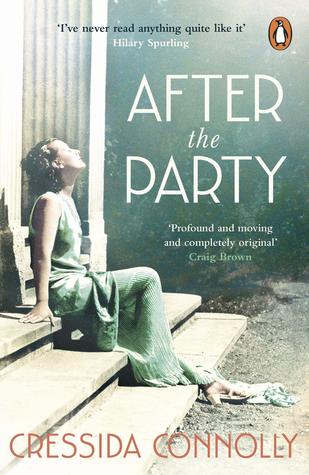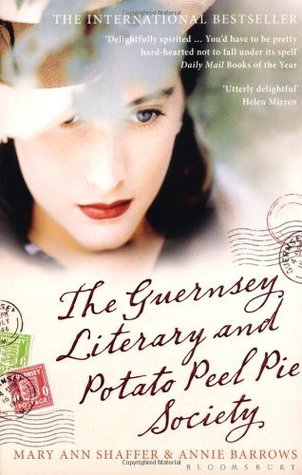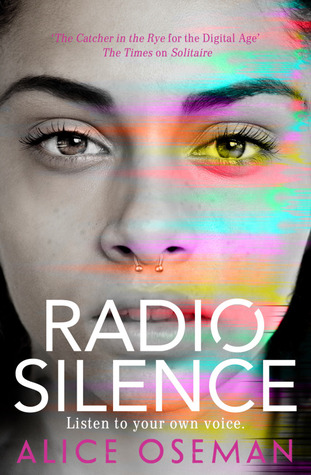Jane Austen is often cited as the originator of what we think of as the Romance Novel. Her books certainly inspired several of the popular tropes in today’s romance novels, including enemies-to-lovers, friends-to-lovers, and second-chance romance.
Given that my brain is always at least 10% occupied with Austen-related thoughts, I often find myself drawing parallels between relationships in modern romance books and Jane Austen’s romantic pairings. The result is this blog post, in which I have a romance book recommendation inspired by the main romantic pairing in each of Jane Austen’s six novels. I’ve got a mixture of historical, fantasy and contemporary recommendations, so hopefully there’ll be something for everyone!
*I want to caveat this post by pointing out that it does somewhat give away who ends up with who (both in Jane Austen’s novels and the modern reads) – so if you haven’t read all of Jane Austen’s novels, or don’t like to know who the main love interest is when going into a romance novel, it might be best to skip it!*
Elizabeth Bennet and Fitzwilliam Darcy from Pride and Prejudice // Half a Soul by Olivia Atwater

Title: Half a Soul (Regency Faerie Tales #1)
Author: Olivia Atwater
Published: 29th March 2020
Pages: 284
Genre: Fantasy
Let’s start with the most popular of all Jane Austen’s romantic pairings! Pride and Prejudice is the original enemies-to-lovers romance, which is perhaps the most popular romance novel trope these days. But I think simply calling Elizabeth and Darcy “enemies” overlooks the subtleties of their relationship at the beginning of the book, particularly in the scene at Netherfield where Elizabeth and Darcy engage in a witty mutual character assessment which goes straight over the head of the bemused Caroline Bingley.
It was this scene in particular which made me think of Half a Soul as the ideal recommendation for Elizabeth and Darcy fans. This is a delightful Regency fantasy novel featuring a budding relationship between Elias Wilder, the newly appointed Lord Sorcier of England, and Dora Ettings, a young lady taking part in her first London Season with the additional challenge of having only half a soul, the other half having been claimed by a faerie when she was just a child.
Missing half a soul means Dora often misses implicit social cues, and struggles with being less able to feel emotions than her fellow humans. Her pragmatic, unflappable nature and witty retorts, however, make her the perfect sparring partner for the gruff, impatient Lord Sorcier who has established rather a fearsome reputation for rudeness amongst London society.
Behind the gruff exterior, Elias reminds me of Darcy in several ways – from his struggles with a sense of great responsibility to others, to his severe dislike of falseness and deceit. Just like Elizabeth, Dora prompts Elias towards a change of perspective, and the pair perfectly complement each other whilst being distinctly their own people.
Emma Woodhouse and George Knightley from Emma // The Season by Sophia Holloway

Title: The Season
Author: Sophia Holloway
Published: 23rd June 2022
Pages: 320
Genre: Historical
Next, the book that first sparked my inspiration for this blog post. Of all the recommendations on this list, the relationship in The Season definitely bears the closest resemblance to its Jane Austen counterpart. This is a light-hearted, historically rich Regency romance novel following the transition of Lord Charles Henfield and Miss Henrietta Gaydon’s relationship from childhood friends to the potential of something more.
Similarly to Mr Knightley and Emma’s relationship, Lord Henfield is the first to realise that he’s in love with Henrietta (in fact, he’s aware of it at the beginning of the book). Henrietta, though, heads off to her first Season in London still very much thinking of Lord Henfield as an older brother – and matters are further complicated when her stunning success as a debutante leads to several other eligible suitors paying her attention.
I feel that the phrase “written in the style of Georgette Heyer” is thrown at any non-steamy Regency romance these days – but on this occasion, the label is accurate. The period details, humorous tone and entertaining cast of supporting characters all evoke Heyer’s style, so if you’re a Heyer fan who also loves the friends-to-lovers trope, I’d recommend giving The Season a try.
Anne Elliot and Frederick Wentworth from Persuasion // Love and Other Words by Christina Lauren

Title: Love and Other Words
Author: Christina Lauren
Published: 10th April 2018
Pages: 432
Genre: Contemporary
Persuasion features perhaps the most romantic of romance tropes (if that even makes sense) – the second-chance romance. When I say romantic, I suppose what I actually mean here is angst-ridden – because with long-lost love often comes angst and misunderstandings aplenty.
A key theme of Persuasion is Anne’s (and as we discover later, also Captain Wentworth’s) pining for what could have been, whilst feeling unable to express their feelings in the present. There’s plenty of mutual pining to be found in Love and Other Words by Christina Lauren, with Macy and Elliot both desperately trying to squash down feelings about the past which reemerge when they bump into each other years after an unspecified incident that brought their years-long friendship to an abrupt end.
In Persuasion, we are shown details about Anne and Captain Wentworth’s previous relationship through Anne’s reflective internal monologue – but in Love and Other Words the narrative alternates between Macy and Elliot’s childhood and the present day, which personally worked really well for me in terms of upping the angst levels and making me care for these characters. This novel has a more melancholy feel than the other Christina Lauren novels I’ve read, which I think should appeal to readers who enjoy Persuasion for its slightly heavier tone.
Fanny Price and Edmund Bertram from Mansfield Park // Dear Emmie Blue by Lia Louis

Title: Dear Emmie Blue
Author: Lia Louis
Published: 14th July 2020
Pages: 336
Genre: Contemporary
Mansfield Park, I find, often firmly occupies last place in people’s personal rankings of Jane Austen’s novels. But that’s certainly not the case for me – I have a fondness for the character of Fanny, and admire her determination to stick to her convictions.
Emmie Blue, the titular character of this recommended read, reminds me a lot of Fanny. At thirty years old, she’s already faced a lot of challenges, and often finds herself in the position of giving too much to the other people in her life, particularly her best friend Lucas. Similarly to Fanny’s experience of being raised by her aunt and uncle, Emmie has been somewhat adopted into Lucas’ wealthy family, and so we see Emmie experience the struggle of attempting to find her place in a far more affluent social circle than she’s used to.
I don’t want to give too much away, since Dear Emmie Blue is definitely a book where you should go in knowing as little as possible – but I will say that if you are someone who roots for Fanny all the way and cheers as she slowly gains the confidence to stand up for herself, I think you will also enjoy Emmie Blue’s journey, and the romance she experiences along the way.
Elinor Dashwood and Edward Ferrars from Sense and Sensibility // Romancing Daphne by Sarah M. Eden

Title: Romancing Daphne (The Lancaster Family #3)
Author: Sarah M. Eden
Published: 21st June 2017
Pages: 328
Genre: Historical
This was perhaps the hardest recommendation to think of. Sense and Sensibility is probably my least favourite Austen novel – and a big part of this is that I find the romances a little uninspiring. But as I thought of the pragmatic, intelligent Elinor and the duty-bound Edward, I was reminded of Daphne and James from Romancing Daphne.
Daphne’s life is in a way a reversal of Elinor’s – rather than a fall from grace and displacement from their home, the Lancaster family’s fortunes have been elevated by the marriage of eldest sister Persephone to the extremely wealthy Duke of Kielder in book 1 of the series. But in Daphne’s pragmatism and intelligence I saw similarities to Elinor, and Daphne’s struggle to escape from her beautiful sister Athena’s shadow as she reluctantly embarks on her Season reminded me of the contrast between the characters of Elinor and Marianne.
The love interest in this novel is one James Tilburn, who mainly reminded me of Edward due to his honest feelings for Daphne becoming complicated by scheming family members and competing priorities. With ulterior motives and secret arrangements, misunderstandings follow close behind – and like Elinor and Edward, the biggest challenge facing Daphne and James is to cut through all the noise and complication and have an honest conversation about their feelings.
Catherine Morland and Henry Tilney from Northanger Abbey // The Midnight Bargain by C.L. Polk

Title: The Midnight Bargain
Author: C.L. Polk
Published: 13th October 2020
Pages: 369
Genre: Fantasy
Northanger Abbey is perhaps the most adventurous of Jane Austen’s novels. Although there is a romance present, the novel’s main focus is parodying some of the period’s popular gothic fiction, of which Austen was a big fan.
In Northanger Abbey, we see Catherine Morland’s naivety and overactive imagination get her into a spot of bother when she is invited to stay at the imposing Northanger Abbey by her friends the Tilney siblings. Beatrice Clayborn, the heroine of The Midnight Bargain, is similarly naïve, and her determination to illegally practice magic (which is frowned upon for women in this fantastical version of Regency society), means she is often the cause of her own misfortune, with similarly hilarious results.
Beatrice’s friendship with the Lavane siblings also reminded me of Catherine’s infatuation with the Tilneys – especially as Beatrice finds herself falling for Mr Ianthe Lavane. The course of true love does not run smooth, though – not least owing to the disapproval of the Lavane siblings’ formidable mother. There’s a lot of important feminist commentary in The Midnight Bargain which gives it a serious tone at times – but there are also plenty of humorous misadventures which I think fans of Northanger Abbey will enjoy.








 It seems I do a pretty good job of choosing holiday reads that I will enjoy! I’d heard a few people say that this was a good series to binge, so both my mum and I decided to read it – and I think we both frustrated my brother by being pretty much glued to our Kindles the entire week.
It seems I do a pretty good job of choosing holiday reads that I will enjoy! I’d heard a few people say that this was a good series to binge, so both my mum and I decided to read it – and I think we both frustrated my brother by being pretty much glued to our Kindles the entire week.


 Yup, I did it – I finished the Century trilogy before the end of the decade! Although I initially didn’t think this final instalment was as good as the previous two, I’ve found myself unable to stop thinking about it even months after I read it.
Yup, I did it – I finished the Century trilogy before the end of the decade! Although I initially didn’t think this final instalment was as good as the previous two, I’ve found myself unable to stop thinking about it even months after I read it.











 The prompt: Plant on the cover
The prompt: Plant on the cover

